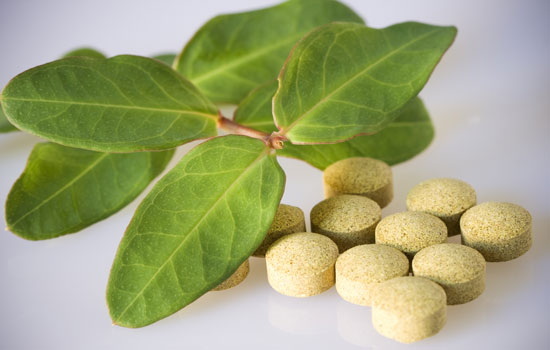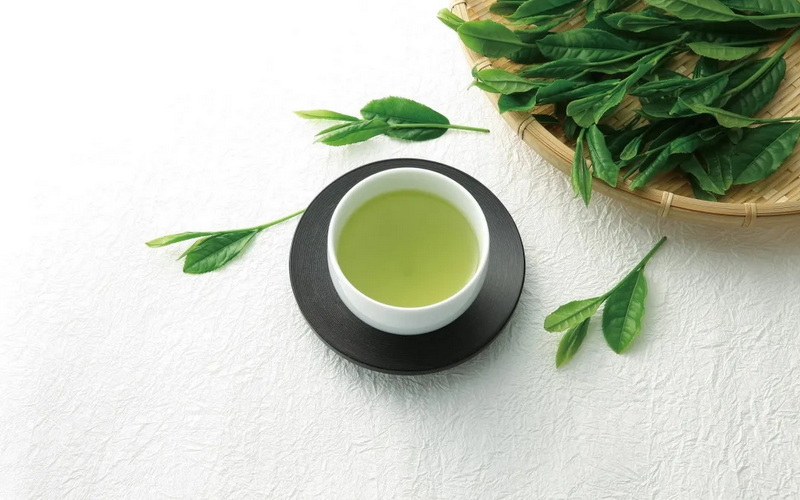Content Menu
● In-depth Analysis of Catechins
● Interactions with Medications
● Dietary Integration
● Introduction to Green Tea Extract
>> Benefits of Green Tea Extract
>> Antioxidant Properties of Green Tea Extract
● Green Tea Extract Liquid
>> Advantages of Liquid Extracts
>> Disadvantages of Liquid Extracts
● Green Tea Extract Capsules
>> Advantages of Capsules
>> Disadvantages of Capsules
● Comparison of Liquid and Capsule Forms
● Choosing Between Liquid and Capsules
● Potential Side Effects and Precautions
● Conclusion
● FAQs
>> 1. What is the recommended dosage of green tea extract?
>> 2. Which form of green tea extract is more effective for weight loss?
>> 3. Can green tea extract improve cardiovascular health?
>> 4. How does green tea extract affect blood sugar levels?
>> 5. Are there any potential side effects of green tea extract?
● Citations:
Green tea extract has gained popularity for its numerous health benefits, including weight loss, improved cardiovascular health, and enhanced antioxidant activity. It is available in various forms, such as liquid extracts and capsules, each with its own advantages and disadvantages. In this article, we will explore the effectiveness of green tea extract in both liquid and capsule forms, discussing their differences, benefits, and potential drawbacks.

In-depth Analysis of Catechins
Catechins, particularly EGCG, are the primary active compounds in green tea extract responsible for its health benefits. These polyphenols have potent antioxidant properties, helping protect against oxidative stress and inflammation. EGCG has been shown to inhibit the growth of certain cancer cells and improve cardiovascular health by reducing cholesterol levels.
Interactions with Medications
Green tea extract may interact with certain medications, such as blood thinners, and decrease their effectiveness. It is crucial for individuals taking medications to consult with their healthcare provider before starting green tea extract supplements.
Dietary Integration
Incorporating green tea extract into your diet can be simple and beneficial. Here are some tips:
- Add to Smoothies: Mix liquid green tea extract with your favorite fruits and yogurt for a nutritious smoothie.
- Use in Cooking: Add green tea extract powder to soups or stir-fries for an antioxidant boost.
- Make a Tea: Steep green tea leaves and add a squeeze of lemon for enhanced flavor and benefits.
By integrating these additional sections, the article provides a comprehensive overview of green tea extract, covering its benefits, forms, and practical advice for incorporation into daily life.
Introduction to Green Tea Extract
Green tea extract is derived from the leaves of the Camellia sinensis plant and is rich in catechins, particularly epigallocatechin gallate (EGCG), which is responsible for many of its health benefits. The extract can be consumed in different forms, including capsules, liquid extracts, and powders.
Benefits of Green Tea Extract
Green tea extract has been shown to:
- Improve Cardiovascular Health: Studies indicate that green tea extract can reduce total cholesterol and LDL cholesterol levels, improve blood lipid profiles, and lower blood pressure.
- Enhance Weight Loss: High-dose green tea extract has been linked to significant weight loss and reduced waist circumference in obese individuals.
- Regulate Blood Sugar: It helps in lowering fasting blood sugar levels and improving insulin sensitivity.
- Antioxidant Properties: Rich in antioxidants, which can protect against oxidative stress and inflammation.
Antioxidant Properties of Green Tea Extract
The antioxidant properties of green tea extract are attributed to its high content of catechins, which help neutralize free radicals in the body. This can lead to improved overall health and reduced risk of chronic diseases such as cancer and neurodegenerative disorders.

Green Tea Extract Liquid
Green tea extract in liquid form is often preferred for its ease of absorption and flexibility in dosage. It can be mixed with water or other beverages, making it a convenient option for those who have difficulty swallowing capsules.
Advantages of Liquid Extracts
1. Easy Absorption: Liquid extracts are generally absorbed more quickly by the body compared to capsules.
2. Customizable Dosage: Users can adjust the amount of liquid extract to suit their needs.
3. Versatility: Can be added to smoothies, juices, or taken directly with water.
Disadvantages of Liquid Extracts
1. Taste: Some people may find the taste of green tea extract unpleasant.
2. Shelf Life: Liquid extracts may have a shorter shelf life compared to capsules due to potential oxidation.
Green Tea Extract Capsules
Capsules are a popular choice for those who prefer a more traditional supplement form. They offer a standardized dose and are often easier to consume than liquids.
Advantages of Capsules
1. Convenience: Easy to swallow and transport.
2. Standardized Dosage: Ensures consistent intake of active ingredients.
3. Longer Shelf Life: Generally more stable than liquid extracts.
Disadvantages of Capsules
1. Slower Absorption: May be absorbed more slowly compared to liquid extracts.
2. Difficulty Swallowing: Some individuals may struggle with swallowing capsules.
Comparison of Liquid and Capsule Forms
| Feature | Liquid Extract | Capsules |
| Absorption | Faster absorption | Slower absorption |
| Dosage Control | Highly customizable | Standardized doses |
| Taste | May be unpleasant | Neutral taste |
| Shelf Life | Shorter shelf life | Longer shelf life |
| Convenience | Flexible usage | Easy to swallow |
Choosing Between Liquid and Capsules
The choice between green tea extract liquid and capsules depends on personal preference, lifestyle, and specific health needs. For those who value ease of absorption and customization, liquid extracts might be preferable. However, for individuals who prefer a standardized dose and convenience, capsules are a better option.
Potential Side Effects and Precautions
While green tea extract is generally safe, excessive intake can lead to potential side effects such as liver damage. It is crucial to follow the recommended dosage and consult a healthcare professional if necessary. Additionally, pregnant or breastfeeding women should consult with their healthcare provider before using green tea extract supplements.
Conclusion
Both green tea extract liquid and capsules offer effective ways to incorporate the health benefits of green tea into your diet. While liquid extracts provide faster absorption and customizable dosing, capsules offer convenience and a longer shelf life. Ultimately, the choice between these forms should be based on individual preferences and needs.

FAQs
1. What is the recommended dosage of green tea extract?
The recommended dosage of green tea extract is typically between 250–500 mg per day, taken with food to avoid potential liver damage.
2. Which form of green tea extract is more effective for weight loss?
Both liquid and capsule forms can be effective for weight loss, but high-dose capsules (e.g., 856.8 mg EGCG) have shown significant results in clinical trials.
3. Can green tea extract improve cardiovascular health?
Yes, green tea extract has been shown to improve cardiovascular health by reducing total cholesterol, LDL cholesterol, and blood pressure.
4. How does green tea extract affect blood sugar levels?
Green tea extract can help lower fasting blood sugar levels and improve insulin sensitivity, making it beneficial for individuals with diabetes.
5. Are there any potential side effects of green tea extract?
While generally safe, excessive intake of green tea extract can cause liver damage. It's important to follow the recommended dosage and consult a healthcare professional if necessary.
Citations:
[1] https://pmc.ncbi.nlm.nih.gov/articles/PMC4725430/
[2] https://www.frontiersin.org/journals/nutrition/articles/10.3389/fnut.2022.1084455/full
[3] https://pmc.ncbi.nlm.nih.gov/articles/PMC7555212/
[4] https://www.healthline.com/nutrition/10-benefits-of-green-tea-extract
[5] https://pubmed.ncbi.nlm.nih.gov/26093535/
[6] https://www.mdpi.com/2297-8739/10/2/121
[7] https://pmc.ncbi.nlm.nih.gov/articles/PMC9370301/
[8] https://www.e-dmj.org/journal/view.php?doi=10.4093%2Fdmj.2017.41.4.251
[9] https://pmc.ncbi.nlm.nih.gov/articles/PMC2855614/






























